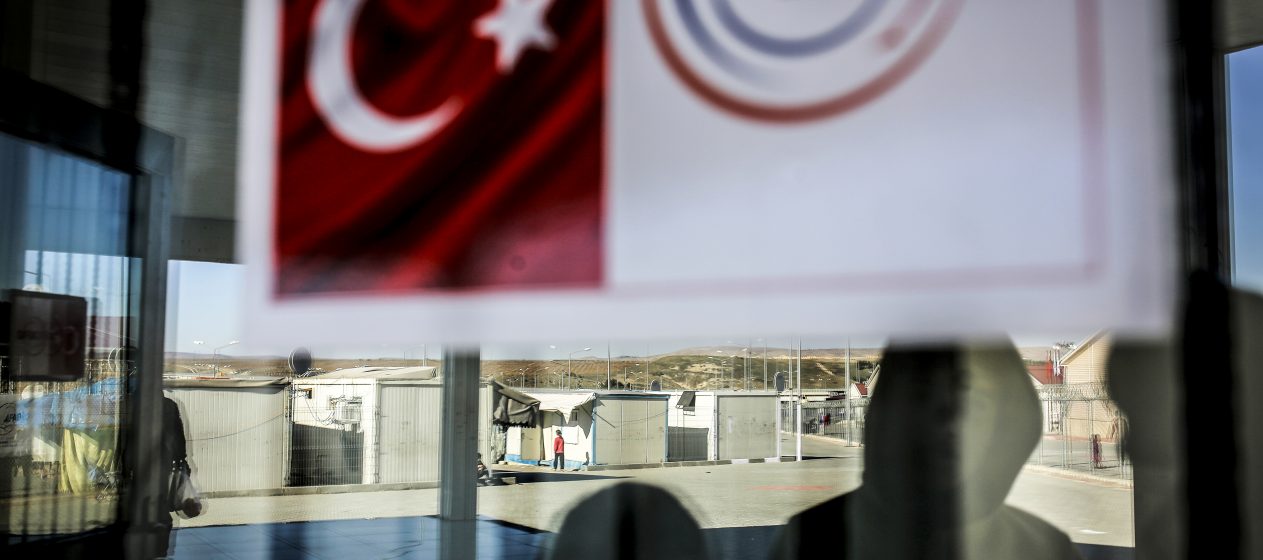In contemporary world politics, migration and refugee crises are among the most heartrending and vexatious issues. Syria represents one of the most significant humanitarian crises and disasters of our time. Since the conflict has started in 2011, thousands of civilians have been killed, and millions have been forced to flee from their homeland. Since its outbreak, civil war and terrorism have forced millions of people to seek refuge in neighboring countries, including Turkey, Jordan, Egypt and elsewhere.
The massive inflow of refugees from Syria makes Turkey the largest host country for Syrian refugees in the region, and the country hosting most refugees in the world in absolute terms. Even though many Syrian refugees currently reside in refugee camps, the vast majority of them live outside them, in urban areas. Many people living in cities are poverty-stricken and face dire socio-economic challenges with minimal opportunities for employment. Therefore, state and local government institutions in Turkey have significant responsibility for providing essential services to refugees. Nevertheless, Syrian refugees living outside refugee camps in Turkey not only represent an often-forgotten challenge for the government, international organizations and NGOs, but they face a whole host of challenges.
While societal acceptance of Syrian refugees remains high in Turkey, service provision in education or health care is not sufficient in light of the rapid influx of refugees. Especially education represents a significant challenge, with an estimated 250 000 school-aged children not attending classes. To guarantee the provision of public goods to Turkish citizens and Syrian refugees alike, it will be critical to scale up capacities of public service providers, to dispense additional funds and to invest in training. As most Syrian refugees are unlikely to return in the short term –at least until some semblance of peace and reconstruction has been achieved, the supply of public goods has to keep up with increased demand. If the system is overburdened and overwhelmed, with state institutions unable to guarantee the provision of goods and services due to inadequate budgets or personnel, Turkish sentiment might turn against Syrian refugees.
Already there is a debate going on in Turkey about how to deal with Syrian refugees. People are often divided into two groups: those who welcome refugees as guests, and those who want to turn refugees away. As elsewhere, the latter see them as a source of social unrest or economic disruption. Increasingly the issue is becoming politicized. In the last elections, the Syrian refugees became an issue with distinct scripts written and arguments advanced by different political forces. Government-backed candidates expressed support for the current policy, whereas some opposition politicians stated their intentions to repatriate refugees. For instance, the Republican People’s Party has repeatedly criticized President Recep Tayyip Erdogan’s policy on Syrian refugees, arguing that they are straining the country’s social and economic infrastructure and should return home.
The backlash against Syrian refugees can already be felt in certain places. In Istanbul, police launched operations targeting undocumented migrants and refugees. Local authorities decided that those Syrians lacking documentation should be transferred to temporary refugee camps in order to be registered. Registered Syrian refugees holding temporary protected status in other parts of the country have until October 30 to leave Istanbul. This persecution contributes to the precariousness, stress and uncertainty caused by the displacement and conflict experienced by Syrian refugees.
At present, Turkey hosts a staggering number of Syrian refugees. Although much attention has focussed on the almost 350 000 people staying in so-called “safe zones” along the Syrian border, a far greater number of refugees lives scattered throughout Turkey. With no end of the Syrian conflict in sight, many Syrian refugees will remain in Turkey for the foreseeable future. This creates both practical and political challenges that need to be addressed to guarantee to adequate provision of public goods and services to both refugees and citizens in Turkey.
Of course, the Syrian refugee issue and Turkey’s response are not affected by domestic politics but international developments. Turkey’s actions will continue to be affected by its relations with Russia, the US and the European Union, its ambitions as a regional player, the situation in Kurdish areas, and, last but not least, Syria itself. The question of what is to be done with Syrian refugees is becoming increasingly politicized in domestic Turkish politics. With the political struggle for power between opposition and government forces intensifying, Syrian refugees might find themselves in the middle, caught between a rock and a hard place.





